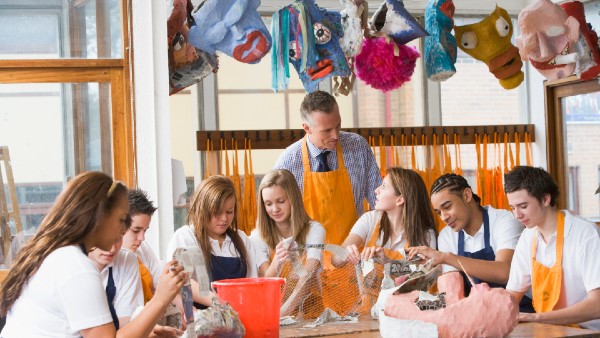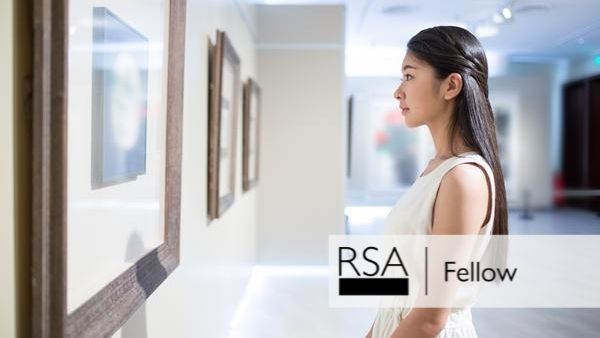The cultural and creative industries are among the worst impacted by coronavirus. And we lose them at our peril, argues Emmie Kell FRSA.
A few weeks into lockdown, creative and cultural businesses across Cornwall and the Isles of Scilly began feeding into a survey about the impact of coronavirus on them. It makes pretty grim reading. Collective losses in the first eight weeks ran into millions of pounds; two thirds said they would not survive more than six months without support; cultural venues saw reductions in visitors heading into the hundreds of thousands. And it only became worse as lockdown continued.
In common with tourism, the cultural and creative sectors have seen a massive and abrupt loss of revenue, which in many cases has been absolute. The survey includes one performer who saw 39 concerts cancelled from March to May, depriving them of any income. Meanwhile museums, galleries and cultural attractions are wondering how – when they are allowed to reopen – they can operate within social distancing rules while still covering their overheads.
Museums face particular challenges. Some occupy older, cramped buildings where it is difficult to maintain both social distancing and a positive visitor experience, and many are totally reliant on elderly volunteers, who remain in the high-risk category for coronavirus and will be unable to work.
Much of the creative sector is made up of microbusinesses and the self-employed, sole traders who freelance as singers, actors, musicians, video makers and technicians, or who have their own art, craft and photography business. In Cornwall, 61,000 people are self-employed. That’s 23% of the workforce, well above the national average of 16%.
So why does all of this matter? Because creative industries are the fastest growing sector we have, growing at more than five times the rate of the UK economy, contributing £111.7 billion a year, or £12.7 million an hour. Creative businesses and freelancers enhance productivity across all parts of the economy adding value to businesses of all kinds.
This is one reason why the Cornwall and Isles of Scilly Local Enterprise Partnership is investing £2 million in creative workspace in the Hall for Cornwall redevelopment. And why the Local Enterprise Partnership successfully bid for £700,000 of government funding to promote the use of augmented technology by local businesses and heritage attractions.
But perhaps more importantly, creativity and culture has massive social impact. Access to culture – whether this is art, music, theatre, dance, literature or galleries – contributes to our mental health and wellbeing. Lockdown has thrown this into sharp focus with many of us turning to art and culture as a tonic amidst the gloom. Cornwall’s rich heritage of creativity has inspired generations and will continue to do so but only if we look after it.
There is also a vital interrelationship between cultural experiences and tourism; people come to places like Cornwall and the Westcountry for unique cultural experiences, whether to visit Barbara Hepworth’s Studio, to see a clifftop performance at the Minack Theatre, or exploring underground at Geevor Tin Mine. Culture and creativity are huge economic assets; they are part of the fabric of Cornwall, which makes it such a special place in which to live and visit.
The challenge now is how many of those cultural assets, how many of those creative businesses, can survive the economic impact of the pandemic and still be here when we come through this?
It is absolutely vital in my view that we protect the capacity of the sector to recover. That means making sure our businesses and the self-employed continue to receive appropriate support especially those that will be much later to reopen or return to work. And it means safeguarding some of the most fragile assets of our cultural offer, which may be marginal in terms of their commercial performance, but now face ruin from a prolonged and unforeseen global contagion. Because if we abandon them now, they may never come back, and that could cause irreparable damage to our economy and our communities.
Fellows wanting to connect with Emmie to share thoughts and intelligence or discuss strategic leadership in the creative sector are welcome to email her at Emmie@cornwallmuseumspartnership.org.uk
Emmie Kell is chief executive of the Cornwall Museums Partnership, a Fellow of the Royal Society of Arts and a Board member of the Cornwall and Isles of Scilly Local Enterprise Partnership, where she chairs the Creative Industries Taskforce.
Related articles
-
Artificial intelligence: the creative edge
Alex Soulsby
How should schools respond to AI? Alex Soulsby calls for a greater focus on the arts to help students develop their creativity, critical thinking, adaptability and emotional intelligence.
-
The magic of the ocean
Fiann Paul
The oceans are the least accessible and most mysterious regions on Earth, and humankind has a deep and eons-old relationship with the sea. Fiann Paul, FRSA, selects five stunning animated films that explore this emotional, almost mystical, bond, and warns that we abuse the oceans at our peril
-
Curating Tomorrow
Henry McGhie
Museums curating consultant Henry McGhie asks how museums and other cultural institutions can support people’s participation in climate action and sustainable development?




Be the first to write a comment
Comments
Please login to post a comment or reply
Don't have an account? Click here to register.